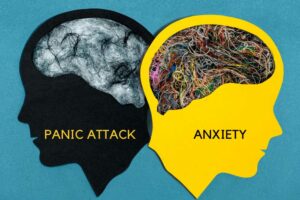Emotions like anger can be powerful forces that drive us to act. Acting on anger can lead to widespread negative consequences. Anger is highly common among people who struggle with substance abuse and is also prevalent within treatment for addiction. To manage your anger, it is important to understand where it is coming from.
Anger as an Emotion
Anger is one of the basic emotions at the core of the brain. It is a response to feeling like you have been hurt or wronged by someone or something. Anger makes you uncomfortable enough to act and is meant to protect you. When you get angry, your mind and body get uncomfortable enough to share your anger as a self-preservation technique. Anger makes you aware of something that you or your body are not okay with so that you will act or react in a way to ensure it won’t happen again. That is the intended purpose of this emotion.
External Sources of Anger
Anger is often caused by an external source. This is typically someone or something that makes you uncomfortable. Some of the common external causes of anger include:
- Being verbally or physically attacked
- Not meeting perceived expectations of others
- Feeling misunderstood
- Feeling overwhelmed
- Criticism from others
- A lack of patience
- Feeling like you are being taken advantage of or unappreciated
- Feeling that something is unfair
- Feeling unloved or unwanted
- Feeling exhausted or beyond your limits
When these feelings or events occur and emotions bubble up inside of you, it is important to release or express your anger. However, because of how powerful anger can be, it is also important to manage your anger and communicate it in a productive way so as to not exacerbate a situation or create harm in others.
When Anger Comes from Depression or Trauma
One of the symptoms of depression that is least known or understood is anger. When you are depressed, you can become irritable. Some people refer to this as short-tempered or having a short fuse. You may react with anger to seemingly innocuous things, perhaps without thinking.
Anger can also be caused by past trauma. When this happens, it is often a response to something traumatic that happened, and you are reacting from your traumatic experience rather than what is happening currently. For example, if you were physically abused, you may react to any kind of emotion, words, or physical movement with anger, trying to protect yourself from a threat that may not actually be there. This is known as a trauma-informed response. Anger as a response to past trauma or that is caused by depression is particularly dangerous, because it can come out of seemingly nowhere and may not match the present threat.
Aggression: Acting on Anger
The most dangerous part of anger is when you allow it to fuel aggression. Many people struggling with substance abuse can become very aggressive, and may even harm people they love. For example, road rage is a form of aggression that is fueled by impatience and anger. Driving while angry or trying to resolve anger with violence can be life-threatening and devastating. Just like anger is there to protect you, aggression is only meant to be used to preserve your life. It is important to find coping mechanisms when you feel aggressive.
Changing Your Perspective on Anger
Within treatment, anger is often addressed. Discovering the sources of your anger or the things that trigger your anger can be very helpful. Noticing anger simply as an emotion allows you to change your perspective on anger and how to manage it. When you understand where it is coming from, you can develop healthy and productive ways to acknowledge it and release your anger. You can learn techniques to help you manage or cope with your anger, as well.
Anger Management and Coping Techniques
Sometimes sharing anger is not productive, but it is still important for you to process your anger. You can use skills such as counting backward from ten when you are angry, which can usually give you time to think before you just blindly react. You can use breathing and mindfulness techniques that allow you to notice your feelings without acting upon them. Some people use humor to diffuse anger, which can help if others are angry, too. You can use the tools you have learned in therapy to manage your emotion and find productive ways to resolve what you are feeling. By diffusing anger right away, you can avoid physical aggression or causing verbal harm to others.
Anger is a response to external stimuli. When your mind feels hurt or threatened, you produce anger as a self-preservation technique. If your anger is coming from past trauma or depression, seeking treatment and therapy for trauma or depression can help significantly reduce your anger symptoms. Most importantly, managing your anger before it turns into aggression is important for you and your freedom, as well as the safety of others. Here at Promising Outlook, we know anger is highly common in the treatment process for addiction. We have caring staff members who understand the relationship between recovery and anger and can help you learn to manage and cope with anger and its symptoms. We can help counsel and guide you as you work through your treatment process, making and setting goals for your future. Call us at 866.980.2869 today to find out more about how we can help you learn to be less angry.





